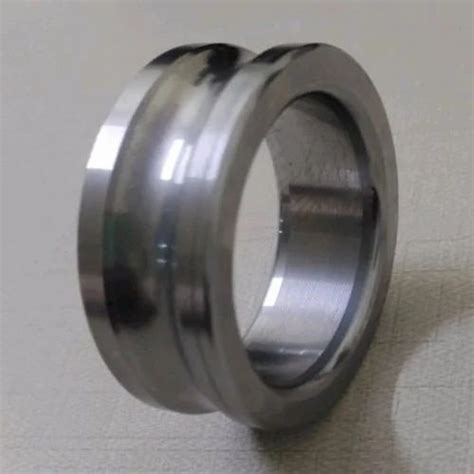Flywheel Bearing: The Unsung Hero of Smooth Engine Performance
Introduction
The flywheel bearing is an inconspicuous yet indispensable component that plays a pivotal role in ensuring smooth engine operation. Located between the flywheel and crankshaft, this bearing allows the flywheel to rotate freely while providing crucial support. Without a properly functioning flywheel bearing, engine performance can be severely compromised, leading to vibrations, noise, and premature failure.
Anatomy of a Flywheel Bearing
Flywheel bearings typically consist of two primary components:
-
Inner Race: This race is pressed onto the crankshaft and rotates with it.
-
Outer Race: The outer race is attached to the flywheel and rotates around the inner race.
Between the inner and outer races are rolling elements, usually ball bearings or roller bearings. These elements facilitate smooth rotation by reducing friction between the races.

Functions of a Flywheel Bearing
The flywheel bearing serves multiple essential functions within the engine:
-
Supports the Flywheel: The bearing provides a stable base for the flywheel, preventing it from wobbling or vibrating excessively.
-
Reduces Friction: The rolling elements minimize friction between the flywheel and crankshaft, ensuring efficient power transfer.
-
Dampens Torsional Vibrations: The bearing helps to absorb and dissipate torsional vibrations, which can originate from the crankshaft or transmission.
-
Extends Engine Life: By reducing friction and vibrations, the flywheel bearing contributes to the longevity and reliability of the engine.
Benefits of a Well-Maintained Flywheel Bearing
Maintaining a well-functioning flywheel bearing offers numerous benefits for engine performance:
-
Reduced Noise: A properly lubricated and aligned flywheel bearing minimizes noise levels, making for a quieter ride.
-
Smoother Operation: The bearing ensures smooth rotation of the flywheel, preventing vibrations that can cause rough idling and acceleration.
-
Improved Fuel Efficiency: Reduced friction within the bearing can contribute to better fuel economy.
-
Enhanced Engine Lifespan: A well-maintained bearing prolongs the life of the engine by reducing wear and tear.
Common Mistakes to Avoid
Improper maintenance or installation of the flywheel bearing can lead to premature failure and engine problems. Here are some common mistakes to avoid:

-
Overtightening the Bearing: Excessive torque can damage the bearing and cause premature wear.
-
Undertightening the Bearing: Insufficient torque can allow the bearing to slip or wobble, leading to vibrations.
-
Using the Wrong Lubricant: Incorrect lubrication can cause bearing failure due to insufficient lubrication or incorrect oil viscosity.
-
Ignoring Bearing Wear: Worn or damaged bearings should be replaced promptly to prevent further damage.
Why Flywheel Bearings Matter
Neglecting the flywheel bearing can have detrimental effects on engine performance and lifespan. Severe vibrations can cause damage to other engine components, while excessive noise can be a nuisance and a safety hazard.

How to Choose the Right Flywheel Bearing
Selecting the correct flywheel bearing is crucial for optimal engine performance. Consider the following factors:
-
Type of Engine: Different engines require specific bearing types and sizes.
-
Load Requirements: High-performance engines or applications with heavy loads require more robust bearings.
-
Operating Environment: Consider factors such as temperature, speed, and vibration levels.
-
Reliability and Durability: Opt for high-quality bearings from reputable manufacturers to ensure longevity.
Comparison of Pros and Cons
Pros:
- Reduced noise and vibrations
- Improved fuel efficiency
- Enhanced engine lifespan
- Easy to install and maintain
Cons:

- Can be expensive to replace
- Requires regular inspection and maintenance
Interesting Stories
1. The Case of the Jittery Jeep
A Jeep owner complained of severe vibrations while driving. Upon inspection, the mechanic discovered a worn flywheel bearing. Replacing the bearing eliminated the vibrations, revealing the importance of timely bearing maintenance.
2. The Silent Tractor
After years of faithful service, a tractor became noticeably quieter. The owner attributed it to the flywheel bearing being replaced recently. The new bearing had reduced friction and noise levels significantly, improving the comfort of the ride.
3. The Lifesaver Bearing
A truck driver avoided a potential catastrophe when his flywheel bearing failed while driving on a busy highway. The bearing seized, causing the flywheel to lock and the truck to come to a sudden stop. Fortunately, the driver was able to pull over safely, narrowly escaping a serious accident.
FAQs
Q: How often should I replace my flywheel bearing?
A: Replacement intervals vary based on vehicle usage and driving conditions. Consult your vehicle's service manual for specific recommendations.
Q: What are the symptoms of a failing flywheel bearing?
A: Symptoms include excessive noise, vibrations, difficulty shifting gears, and a drop in engine performance.
Q: Can I install a flywheel bearing myself?
A: While it is technically possible, bearing installation requires specialized knowledge and tools. It is generally recommended to seek professional assistance.
Q: What type of lubricant should I use for my flywheel bearing?
A: Use a high-quality bearing grease designed specifically for flywheel applications. Consult your vehicle's service manual for the recommended type.
Q: Can a worn flywheel bearing damage other engine components?
A: Yes, excessive vibrations caused by a worn bearing can damage the crankshaft, transmission, and other engine parts.
Q: What are the signs of a worn flywheel?
A: Signs include excessive wobbling, heat discoloration, and difficulty engaging the clutch.
| Flywheel Bearing Materials |
Advantages |
Disadvantages |
| Ball Bearings |
Low friction |
Can handle higher loads |
| Roller Bearings |
More economical |
Quieter operation |
| Composite Bearings |
Lightweight |
High strength |
| Recommended Flywheel Bearing Brands |
Features |
| Timken |
Wide range of bearing sizes and types |
| SKF |
Innovative bearing designs |
| NSK |
Durable and reliable bearings |
Call to Action
Don't overlook the importance of flywheel bearings for optimal engine performance. Schedule regular inspections and maintenance to ensure that your bearings are in good condition. If you notice any symptoms of a failing flywheel bearing, seek professional assistance promptly to prevent further damage and costly repairs.
